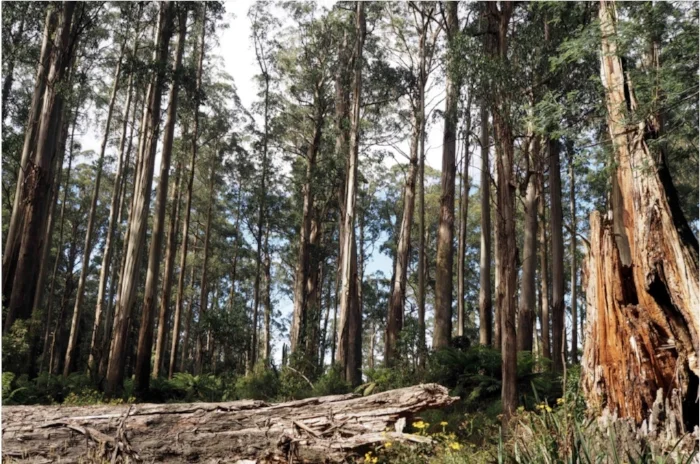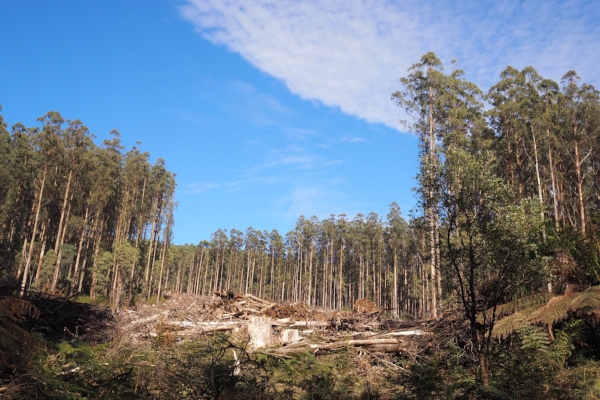“The forests are in what we call ‘hidden collapse’ because the ecosystem superficially appears to be intact, but the prolonged period of decline coupled with long lag times for recovery means that collapse is inevitable.”
Decades of research by Australian scientist, David Lindenmayer and Chloe Sato, shows that Melbourne city's water supply is collapsing.
Melbourne is the capital city of the Australian state of Victoria where some 4.8 million people live. Most of their water comes from a single government-owned supplier, Melbourne Water, which gets its water from forests outside the city.
Lindenmayer and Sato say in their article:
"Despite the extensive literature on ecosystem collapse, there are very few empirically based descriptions quantifying specific ecosystems undergoing collapse, especially in terrestrial environments (2). Evidence of ecosystem collapse is most often uncovered after it has occurred, meaning there are only retrospective opportunities to describe in detail the changes occurring in the ecosystem during its collapse. This may be one of the reasons why it remains extremely difficult to accurately predict if and when collapse might occur (2, 8). However, the increased likelihood of such problems globally means it is critically important to describe ecosystems in the process of collapse, document the drivers of change and how they manifest, develop more robust early-warning indicators of collapse, and better articulate what might be done to avert collapse."
• Researcher David Blaire measuring a tree in the Melbourne city water supply forest
Because their research has been underway for several decades Lindenmayer and Sato now have extensive linear data showing the forest and water supply from it is collapsing and may entirely collapse.
"Here, we use data from a series of multifaceted, long-term empirical studies to describe the process of collapse in the Mountain Ash (Eucalyptus regnans) forests of southeastern Australia (Fig. S1) (9–11). This ecosystem supports the tallest flowering plants on Earth with large, old trees approaching 100 m in height (12). The Mountain Ash ecosystem provides habitat for species-rich animal and plant assemblages (including critically endangered taxa), generates most of the water for the ∼4.5 million people in Melbourne, stores large amounts of biomass carbon, and supports timber, pulpwood, and tourism industries (13). In particular, we focus our empirical analyses of ecosystem collapse on the current and projected decline in populations of large, old-cavity trees and closely associated cavity-dependent fauna. Changes in populations of these trees are a strong indicator of the condition and status of biodiversity (14) and the ecosystem per se. In addition, large, old-cavity trees are critical to ecosystem function through their influence on patterns of tree germination and seedling recruitment (15) and their disproportionate contribution to carbon storage (16), the water cycle (17), and fire dynamics (18). If collapse were to occur, the dominant overstory Mountain Ash tree species would likely be replaced by Acacia spp.-dominated shrubland. There are already areas of Acacia without overstory eucalypts within the boundary of the Mountain Ash ecosystem, but they are currently not widespread."
You may wish to download the article here.
• Logging in the city's water supply catchment forest: Tabitha Boyer Toolangi logging coupe
There's an election underway for a new government in Victoria with voting on 24 November 2018. With some seven months ahead 'til the election I wonder if Melbourne's collapsing water supply will become an issue.
And I wonder if, during those months, the options of increasing rain tank use and numbers, recycling sewage and stormwater, and providing financial incentives to property owners to install tanks, draingardens, re-use sewage will be offered to voters?
Let's see; I'll blog about this again and if you wish to comment here I'd welcome your thoughts.
May the raindrops be with you,
Michael



